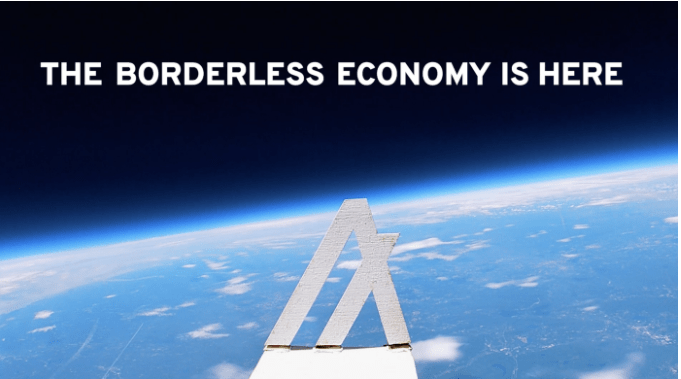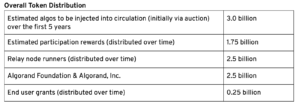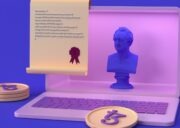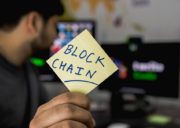
If you’re into blockchain technology or follow cryptocurrencies you may have heard of Algorand, the new blockchain platform founded by Turing Award winner, MIT teacher and zero-knowledge proof creator, Silvio Micali.
Algorand is a Boston-based open-source software company working towards building a borderless economy. They’ve developed a permissionless, PureProof-of-Stake (PoS) protocol with open participation, scalability, security and transaction finality.
Key Characteristics
Algorand aims to solve the three main problems faced by blockchains today, also known as the blockchain trilemma: security, scalability, and decentralization.
In Algorand’s consensus algorithm, called Pure Proof of Stake, the network ties its security to the honesty of the majority. Essentially, in comparison to Delegated Proof-of-Stake, Liquid Proof-of-Stake or Bonded Proof-of-Stake, there is no sanction mechanism, also known as slashing, in case an actor misbehaves — think about liveness faults such as low uptime, or security faults such as trying to validate twice the same block. Rather than punishing bad actors, Algorand prefers to make cheating by a minority of the money impossible and cheating by the majority stupid. As long as 2/3 of the majority is honest, the protocol will work just fine.
In Algorand, blocks are constructed into 2 phases through lotteries known as “cryptographic sortition” enabling fast finality, long gone would be the days where one would have to wait for 30+ confirmations and eventually several hours to ensure that a transaction really happened.
- Proposal phase: a single token is randomly selected, and its owner proposes the next blocks. However, this proposer is only known to the whole network during the propagation phase: it is already too late to interfere. In Pure PoS, every token has the same power in being selected.
- Voting round: a committee of owners of 1,000 random tokens is selected, approving the block proposed by the first user. As opposed to the fixed committee system in many Proof-of-Work or Proof-of-Stake blockchains, this random selection of the committee members makes the protocol extremely secure against adversary attacks: they simply don’t know who to target.
Properties to highlight:
- Low computation requirements: No need for high energy-consuming mining farms.
- Fast agreement: The entire community agrees on the next block and confirms transactions with latency on the order of a minute while scaling to many users.
- Delegation: Token holders can delegate their tokens if they wish to participate in the consensus.
- Extremely low fork probability: Users can rely on a new block as soon as it appears. Even if the network is temporarily partitioned, Algorand ensures that no users have divergent views of confirmed transaction.
- True decentralization: the network is not controlled by a few miners or validator set since proposers and committees are randomly selected.
- Governance: Community token holders can propose changes to the protocols and agree on its evolvability.
Team
- Silvio Micali, Founder: MIT Faculty member and recipient of several prestigious awards among which the Turing Award in computer science.
- Steven Kokinos, CEO: Serial entrepreneur, Co-founder of Fuze, BladeLogic, and Web Yes.
- W. Sean Ford, COO: Former CMO of LogMeIn, an experienced consultant and Co-founder of Upromise.
The team is also made of several renowned experts and advisors. They’re currently recruiting but also looking for community ambassadors.
Token
The Algorand Foundation is injecting Algo tokens into the system through a series of Dutch Auctions. The first auction was held on June 19th, 2019.
The refund program allows auction buyers to sell tokens back to the Foundation. The refund program works as a mechanism to reduce supply if demand falls.

https://algorand.foundation/token-dynamics
Developer Resources
Algorand’s open-source implementation makes it simple and fast for developers to build on blockchain. The developer enablement program encompasses Java, JavaScript (node.js and browser), and Go SDKs, REST APIs, and comprehensive developer resources and collaboration tools. developer.algorand.org
Cryptographic Verification: For Binaries and Source Code
Algorand will be cryptographically signing source and binary releases as part of ensuring a trustworthy secure process. The dev@algorand.com public key can be used to verify git tags, source releases, and most binary releases. The rpm@algorand.com public key can be used to verify rpm packages.
Security at Algorand
Algorand takes the security of the platform and of its users very seriously. To learn more about the programs for submitting a security vulnerability, please visit https://www.algorand.com/resources/security
Free Analytics for Algorand DApps
Flipside Crypto offers a free analytics suite for developers building DApps on Algorand. With real-time updates of on-chain activity, developers can analyze user behavior and identify key trends such as the number of addresses interacting with their application. Click here for more details and to sign up.
Supporters
Right now, Algorand is backed by some leading cryptocurrency and tech funds including Metastable, Sparkpool, MultiCoin Capital, AlgoCapital, or even NGC. Last October, the company secured $66m in



